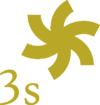3s has, in cooperation with Neuberger Research and RSI consulting, conducted analyses about current and future needs regarding education and training in the nanotechnology field in Austria.
In Austria, nanotechnology-related education and training is closely connected to the existing R&D – institutions. Even though Austria’s economy is relatively small, focused activities have supported the formation of a highly productive core nano-team. Currently, nanotechnology can be considered a high growth field in R&D as well as in businesses, where substantial support is needed to encourage future developments. Type of services provided:
- analyses about current and future needs in the field of education and training in the nanotechnology field in Austria, based on: pollys, interviews and market data research
- qualitative interviews with representatives of the industrial sectors, qualitative interviews with experts in training and education in the nanotechnology field (secondary and tertiary level), online census of relevant enterprises
- approximation of the number of appropriately qualified employees & extrapolation of the number of furthermore needed appropriately qualified employeed
- identification of relevant qualification patterns and qualification needs, of educational and training possibilities in the nanotechnology field
- comparison of relevant education and training activities in Austria with relevant activities in selected countries to identify chances, necessary measures and synergy effects
- elaboration of a concept for future education and training in the nanotechnology field and recommendations for implementation.
The recommendations were compared via a scenario-approach, with the positive impact on the key indicators as the differentiating indicator. Thus, the best approach for grant intensity was estimated for the short, mid and long term. The final recommendations were derived via a Scenario- and Evaluation process in comparison to previous national and international activities to support (financially) education and training in the nanotechnology field.


